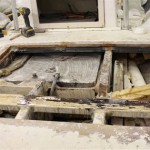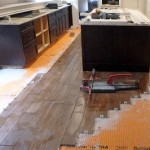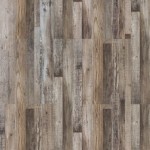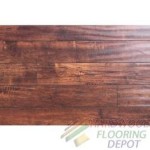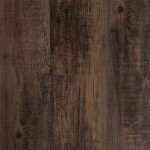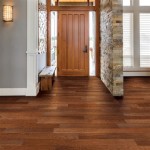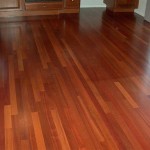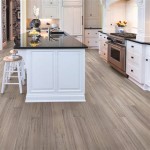Engineered Bamboo Flooring: A Detailed Overview
Engineered bamboo flooring has gained popularity as a sustainable and durable flooring option. It combines the best features of bamboo with the stability of engineered flooring, resulting in exceptional performance and aesthetics. Here are some essential aspects of engineered bamboo flooring to provide you with a comprehensive understanding:
Construction and Composition
Engineered bamboo flooring is constructed using multiple layers of bamboo veneers. The top layer, known as the wear layer, is made from the hardest part of the bamboo stalk and is responsible for durability and appearance. This layer is typically 3-4 millimeters thick and can be refinished multiple times, extending the life of the flooring.
The core layer is made up of multiple layers of bamboo strands bonded together using high-pressure adhesives. This provides dimensional stability and prevents warping or cupping, making it suitable for use in various climates and subfloors.
The bottom layer is a balancing layer made from a thin backing material that adds stability and prevents warping. It also helps to reduce noise and insulates the floor.
Durability and Sustainability
Engineered bamboo flooring is renowned for its remarkable durability. The hardness of bamboo rivals that of oak, making it resistant to scratches and dents. This durability makes it suitable for high-traffic areas, such as living rooms, kitchens, and commercial spaces.
Bamboo is a rapidly renewable resource, making it an environmentally friendly flooring choice. It grows quickly without the need for pesticides or chemicals, and it absorbs more carbon dioxide than it releases, promoting a positive environmental impact.
Appearance and Versatility
Engineered bamboo flooring is available in a wide range of colors, patterns, and finishes. The natural grain of bamboo adds a touch of warmth and organic beauty to any space. It can take on a variety of stains and treatments, allowing you to customize the look of your flooring to match your aesthetic preferences.
Engineered bamboo flooring is versatile and can be installed in various ways. It can be floated over existing flooring, glued down, or nailed into place, providing flexibility for different subfloor conditions and installation preferences.
Maintenance and Care
Engineered bamboo flooring is relatively low-maintenance, making it a practical choice for busy households. Regular cleaning with a vacuum or broom removes dirt and debris. Occasional mopping with a pH-neutral cleaner can help maintain its appearance.
Avoid using abrasive cleaners or excessive water, as this can damage the flooring. If necessary, refinishing can restore the original appearance of the wear layer, allowing the flooring to last for decades.

What Is The Difference Between Solid And Engineered Bamboo Flooring Company

Renature 3 8 In Strand Natural Engineered Bamboo Flooring 5 13 Wide Ll

Renature 3 8 In Raleigh Distressed Strand Engineered Bamboo Flooring 5 13 Wide Ll

Engineered Bamboo Flooring Pros And Cons Best Brands Floorings

Engineered Bamboo Flooring Pros And Cons Best Brands Floorings

Aquaseal 7mm W Pad Strand Carbonized Distressed Water Resistant Engineered Bamboo Flooring 7 5 In Wide Ll

The Pros And Cons Of Engineered Bamboo Flooring Builddirect Blog

Lifeproof Waverly 9 32 In T X 5 W Waterproof Engineered Bamboo Flooring 13 4 Sqft Case Hl676 The Home Depot

Aquaseal 7mm W Pad Toffee Distressed Water Resistant Strand Engineered Bamboo Flooring 5 13 In Wide Ll

Bamboo Flooring Eco Floors Metzger Or
Related Posts

